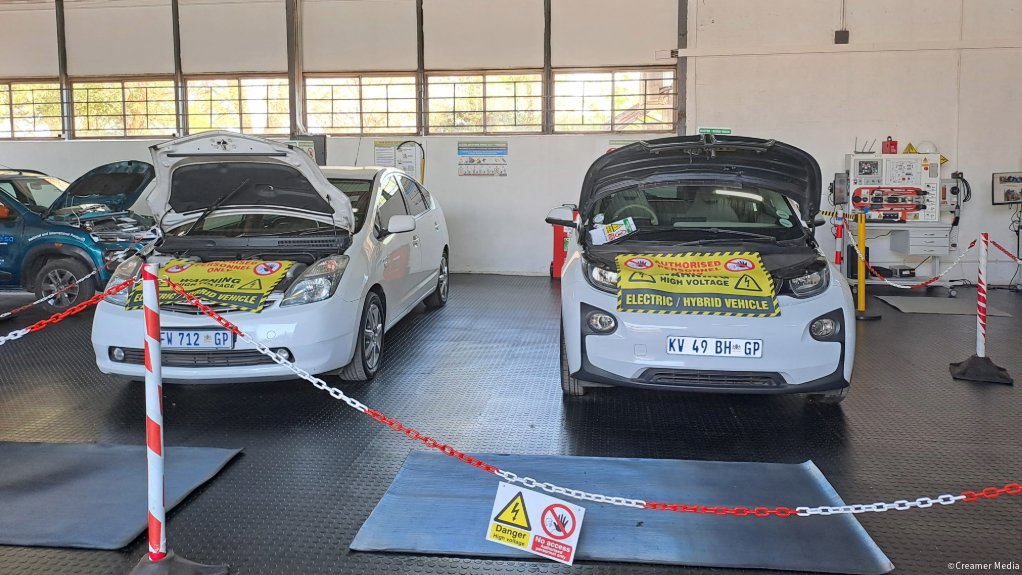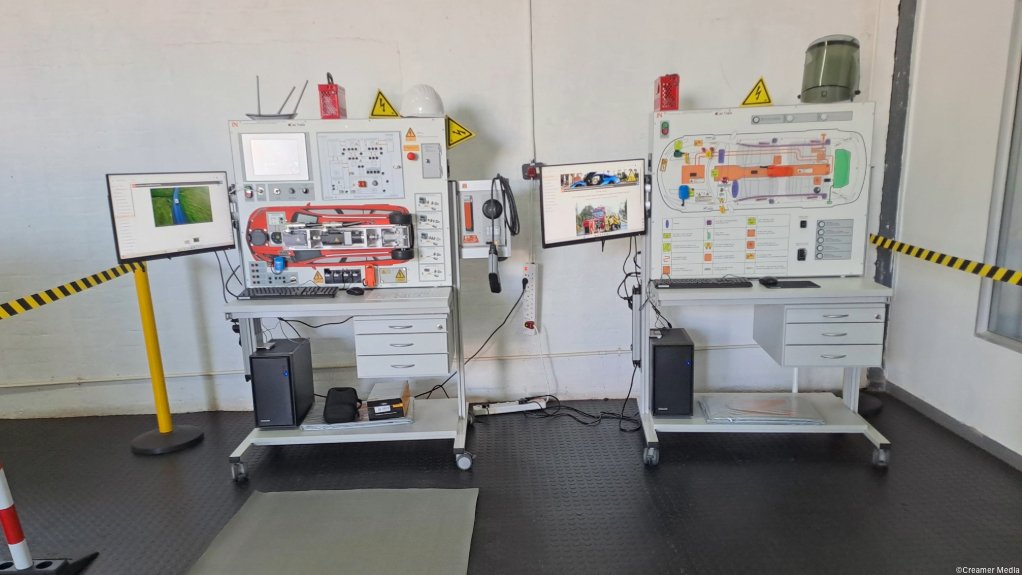Automotive quality control specialist Chrisnelsa, in collaboration with government entity the Automotive Industry Development Centre (AIDC) and UK-based EV training institute Duplex Business Services, last week launched an electric vehicle and hybrid electric vehicle (EV/HEV) training centre in Rosslyn, South Africa.
Through the awarding of Institute of the Motor Industry qualifications, this pioneer EV/HEV training centre for South Africa and Africa aims to provide individuals in the region with comprehensive training tailored to the unique challenges and opportunities within the emerging EV market.
Speaking to Engineering News at the launch, Chrisnelsa Training Centre administrator Cecilia Bassog said the centre would likely be fully operational by January 2025.
She said the centre was aimed at upskilling, reskilling and training the vast majority of those who would come into contact with EVs, including mechanics, operators, electricians, technicians, paramedics and first responders.
Training would cover EV fundamentals, providing leaners with a comprehensive understanding of the core principles and technologies that power EVs and HEVs.
It would also cover EV design and engineering, showcasing the latest advancements in EV design, including battery pack modelling, battery management systems and vehicle dynamics.
It would also cover first responder training. In partnership with CarTrain, the centre will equip emergency services personnel with the skills to handle accident-damaged or malfunctioning EVs.
The centre is said to provide flexible learning options. It currently offers seven courses, covering different levels and ranging from unemployed people to trained technicians.
Costs and time periods differ according to the course. Fees are indicated to be affordable, ranging from R8 500 to R14 880, while course lengths range from three days to 24 weeks.
A unique facet of the centre was that it had a programme that integrated theoretical training with practical training, Bassog highlighted. Therefore, leaners did not necessarily have to work on a live car and see what happened under different scenarios, she explained.
The centre also aims to address challenges posed by EVs, such as health and safety risks for users and workers owing to the use of high voltage current.
Bassog emphasised that safety was pivotal in the centre, with the first module focusing on this. Safety awareness was instilled into learners from the onset, with proper personal protective equipment and protocols required at all times when they were working with high voltage systems.
The centre aims to train leaners on all ranges of HEVs and EVs.
Bassog said that the centre currently had capacity to train 100 students monthly.
She highlighted that, importantly, the centre was targeting the mass majority. As alluded to, it was aiming to train all those who would come into contact with EVs, ranging from mechanics to paramedics.
Bassog said the plan was to expand job creation, providing the region’s markets with properly trained individuals for when EV demand picks up.
While still a nascent industry, Bassog indicated that her research had shown that South Africa was the leader in terms of EVs in Africa, and that by 2030, the country would have a considerable uptake of HEVs, eventually transitioning to EVs a decade later.
This centre was part of the work in building capacity for HEVs and then EVs in the country, Bassog pointed out.
Following the launch, Chrisnelsa and the AIDC signed a memorandum of understanding on actionable items for the centre moving forward.
Edited by: Chanel de Bruyn
Creamer Media Senior Deputy Editor Online
EMAIL THIS ARTICLE SAVE THIS ARTICLE
ARTICLE ENQUIRY
To subscribe email subscriptions@creamermedia.co.za or click here
To advertise email advertising@creamermedia.co.za or click here















